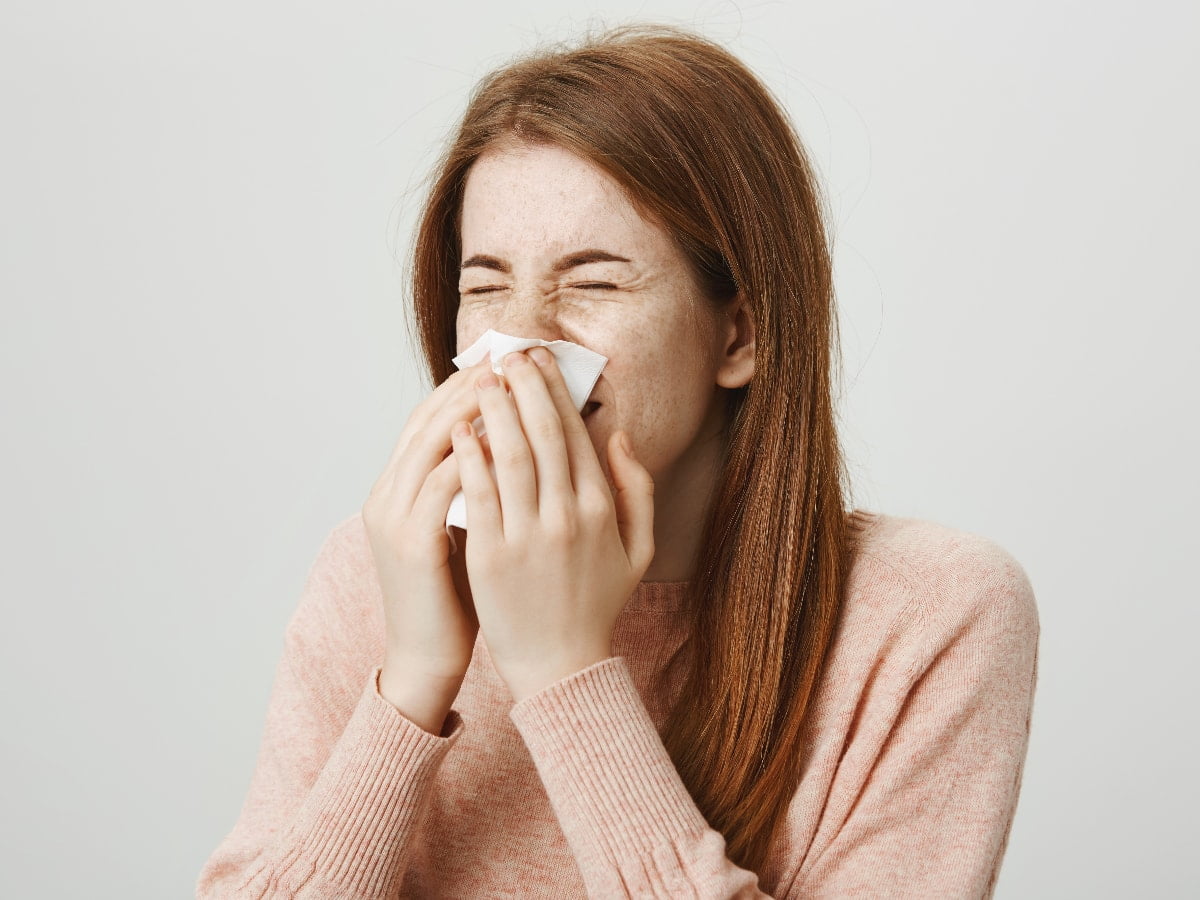Can Allergies Up High Blood Pressure And Heart Disease Risk? Yes!  People with allergies should be on the lookout for diseases like high blood pressure and cardiovascular problems, according to a recent study.
People with allergies should be on the lookout for diseases like high blood pressure and cardiovascular problems, according to a recent study.
Seasonal allergies may not be serious unless they become persistent, irritating and negatively impact your normal day to day activities. Generally, an allergic reaction begins in your immune system. When a person who is allergic to a substance such as dust, mould, or pollen comes into contact with it, their immune system may overreact by creating antibodies that “attack” the allergen. Some of the common symptoms of allergies include wheezing, itching, a runny nose, watery or itchy eyes, etc.
But did you know that allergies can up your risk of several diseases as well?
Can Allergies Up High Blood Pressure And Heart Disease Risk?
According to a study published in the Society of Cardiology journal, adults with a history of allergy diseases are at an elevated risk of high blood pressure and coronary heart disease. Preliminary research has also found a link between allergy illnesses and cardiovascular diseases.
For the study, researchers examined data of 34,417 individuals with over half of them being women and an average age of 48.5. There were 10,045 adults in the allergic group. The researchers took into account age, gender, race, smoking, alcohol consumption, and BMI, as well as subgroups stratified by demographic characteristics.
After analysis, they found that people with a history of allergy illnesses were at a higher risk of high blood pressure and coronary heart disease. The researchers found that people between the ages of 39 and 57, male and Black/African Americans were at a higher risk as compared to other groups. Asthma could also be a risk factor for blood pressure and coronary heart disease, as per reports.
How To Know If You Are Allergic To Something?
Symptoms of an allergic reaction normally appear within minutes of being exposed to anything you’re allergic to, however, they might sometimes take many hours to appear. Although allergic reactions can be inconvenient and interfere with daily activities, most of them are minor. In rare cases, a severe reaction can lead to anaphylaxis.
Anaphylactic shock, also known as anaphylaxis, is a life-threatening allergic reaction to some substances. The tissues of the body, including those in the throat, may swell. A quick drop in blood pressure is another symptom of anaphylactic shock. While symptoms can vary from person to person, some of the common signs include:
- Itching and hives all over the body
- Feeling warm
- Swelling of the throat and tongue
- Throat constriction
- Breathing problems or shortness of breath
- Dizziness
- Headache
- Cramping or pain
- Nausea, vomiting, or diarrhoea are all symptoms of a stomach bug.
- Shock
- Loss of consciousness
- Feeling light-headed
- Anxiety
- Abnormal heart rate (too fast or too slow)








